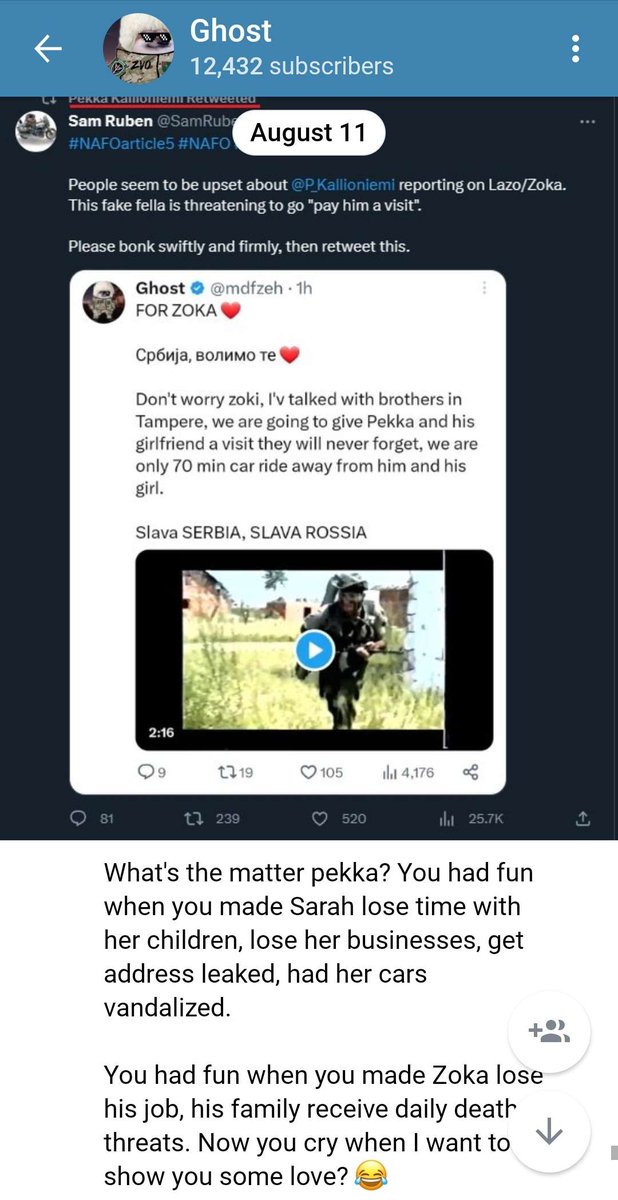In today's #vatniksoup, I'll introduce a Swedish social media personality, Merdan E AKA @mdfzeh. He's best-known for threatening pro-Ukrainian voices, and for desperately trying to delete his social media accounts.
This research was conducted by the Unintelligence Agency.
1/7
This research was conducted by the Unintelligence Agency.
1/7

This soup was brewed, not because Merdan is a prominent or notable figure in the vatnik scene, but because he threatened me and my imaginary girlfriend.
As of today, his activities and his associates have been reported to the Swedish police.
2/7



As of today, his activities and his associates have been reported to the Swedish police.
2/7



Merdan's family is originally from Turkmenistan, and his father came to Sweden from Russia in 1994. He was granted political asylum and eventually became a Swedish citizen. Unlike his son, the father claims to be "integrated into Swedish society".
3/7
3/7

Like his father, "Ghost" currently lives in Luleå, Northern Sweden with his wife and children. He's currently learning Russian, Chinese and German on Duolingo so he might be thinking of relocating to BRICS or to Germany if AfD wins the election by a landslide.
4/7


4/7


Merdan might also be involved in some kind of troll farm activity, as he's created hundreds and hundreds of e-mail accounts with similar names and with same password. Incidentally, he blames NAFO for "creating burner accounts" and for reporting him.
5/7
5/7

In the past few days, Merdan has been meticulously deleting all of his social media accounts, including the one on Facebook and on VKontakte. In the latter, he was a big fan of Igor Girkin's and also followed a page called Reports from the militia of Novorossiya.
6/7
6/7

Now, threatening someone with violence is a serious crime in Sweden. We have plenty of proof of this, and other stuff, and the authorities have been informed.
You decided to fuck around, now it's time to find out.
7/7



You decided to fuck around, now it's time to find out.
7/7



• • •
Missing some Tweet in this thread? You can try to
force a refresh

































